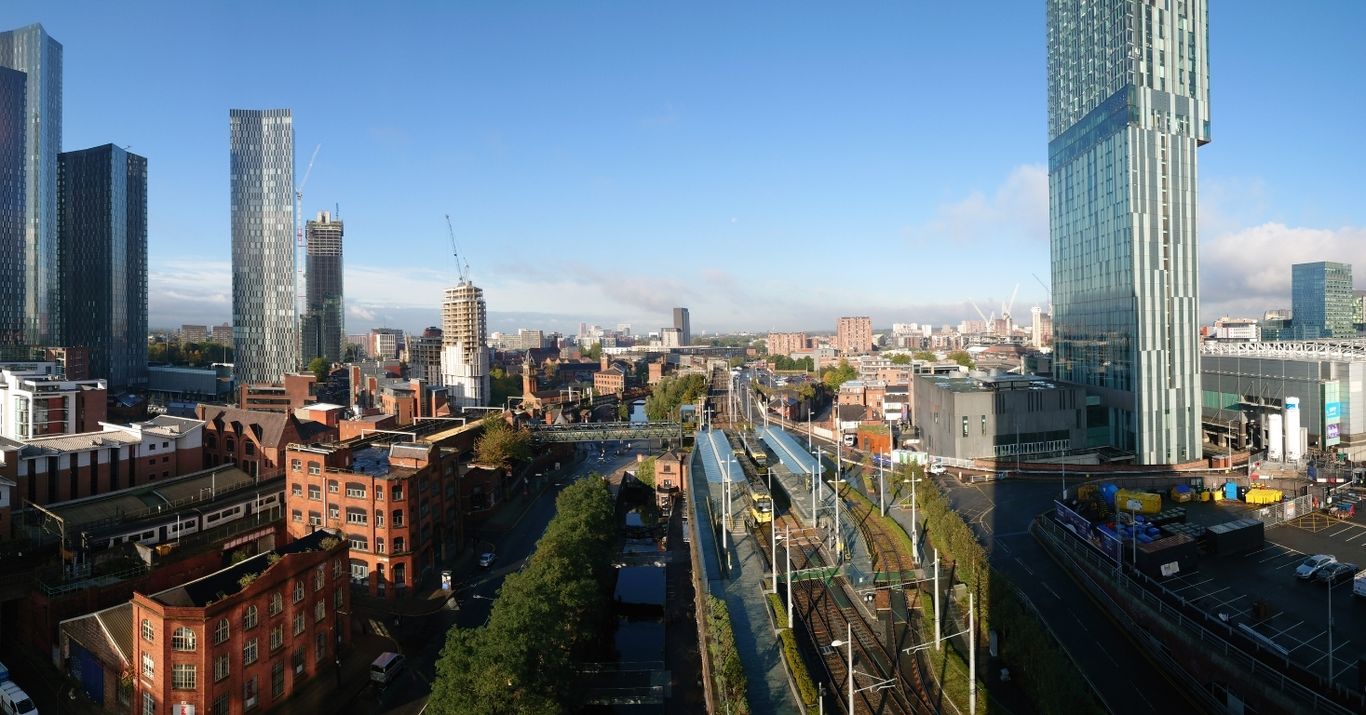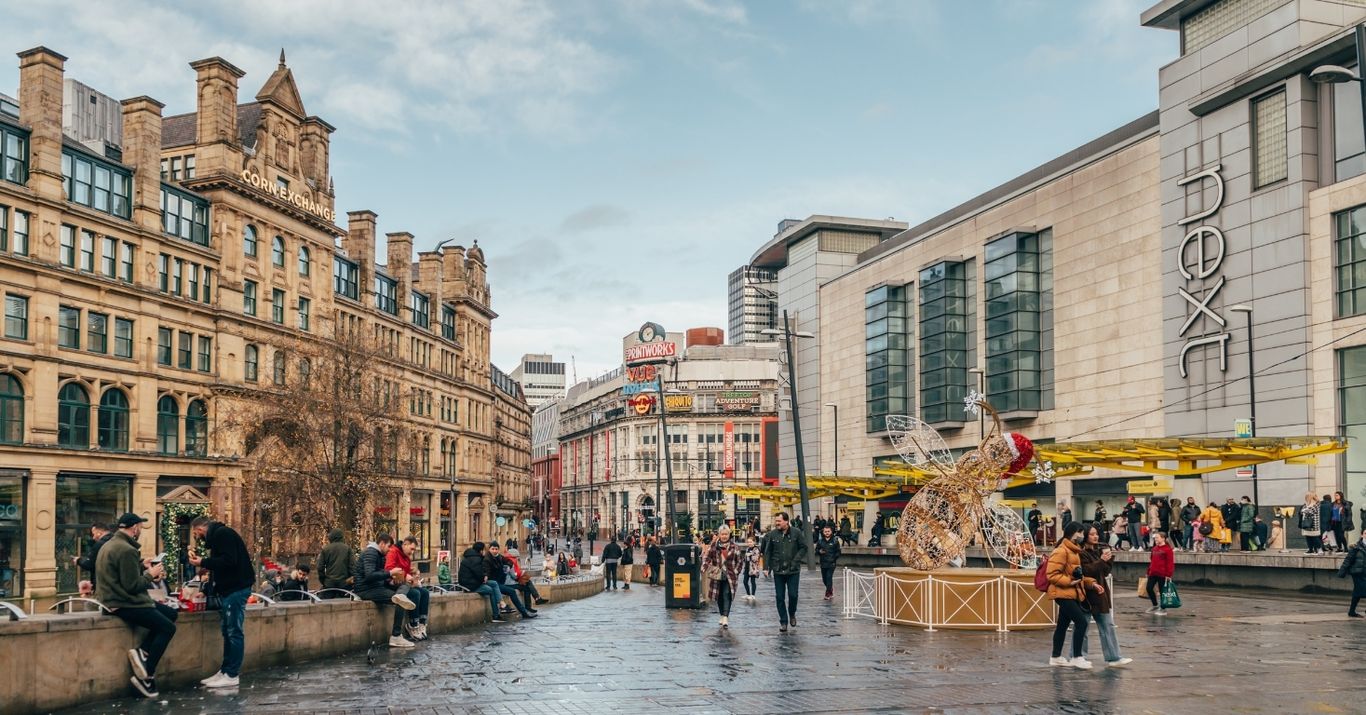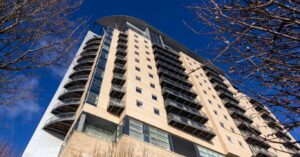
Commercial vs. Residential Property Development in Manchester: Which is the Better Investment?
Manchester’s property development market is booming, offering lucrative opportunities for investors. However, choosing between commercial property development and residential property development can be challenging. Each sector has its benefits, risks, and financial returns. In this article, we’ll explore the advantages and challenges of both, helping investors make informed decisions about Manchester property investment.
At Mkenny Properties, we specialize in commercial, residential, and mixed-use developments in Manchester, providing tailored investment opportunities for individuals and businesses.1. Understanding Commercial Property Development
Commercial property development includes office buildings, retail spaces, warehouses, and mixed-use developments. Manchester’s city center and surrounding areas have witnessed substantial growth in this sector, driven by business expansion and urban regeneration projects.Advantages of Commercial Property Development:
- Higher rental yields – Commercial properties generally offer better return on investment than residential properties. Investors often see higher annual rental yields due to long-term business leases and premium commercial locations.
- Long-term lease agreements – Many businesses sign leases lasting 5-10 years, ensuring consistent income. Unlike residential leases, which are usually shorter, commercial leases provide greater financial stability for landlords.
- Lower maintenance costs for landlords – Tenants often cover maintenance and operating expenses, which means lower costs for landlords. Businesses take responsibility for maintaining their rented premises, reducing property management expenses.
- Business demand in Manchester – The city has a growing business hub, increasing demand for office spaces. With large corporations, tech startups, and retail brands expanding into Manchester, commercial spaces are in high demand.
- Potential for property value appreciation – Prime commercial locations in Manchester can see significant appreciation over time. As the city continues its urban regeneration efforts, well-located commercial properties tend to increase in value, making them a great long-term investment.

Challenges of Commercial Property Development:
- Higher initial investment – Purchasing and developing commercial properties requires significant capital. This can be a barrier for smaller investors who may not have the resources to enter the market.
- Economic fluctuations – Market downturns can lead to longer vacancy periods. Unlike residential properties, where demand remains relatively stable, commercial spaces are more vulnerable to economic shifts.
- Complex zoning and planning regulations – Developers must navigate strict local policies. Planning permission for commercial developments can be more challenging to secure, requiring thorough research and compliance with regulations.
- Changing work trends – The rise of remote work is shifting demand away from traditional office spaces. Investors need to consider flexible workspaces and co-working hubs as part of their development strategy.
- Limited pool of tenants – Finding the right commercial tenant can take longer compared to residential properties. Business needs vary, and vacant commercial spaces may take longer to lease.
2. Understanding Residential Property Development
Residential property development in Manchester is in high demand due to population growth and increased housing needs. Popular areas such as Manchester city center, Salford, and Greater Manchester are seeing rapid residential expansion.Advantages of Residential Property Development:
- Consistent demand – People always need housing, making residential investment stable. The rising population and student influx in Manchester ensure continued demand for homes.
- Easier financing options – Banks and lenders offer more mortgage options for residential properties. Compared to commercial loans, residential mortgages are often easier to secure, even for first-time investors.
- Faster sales cycles – Homes often sell quicker than commercial properties. Buyers, including first-time homeowners and investors, create a strong market for residential properties.
- Government incentives and grants – There are schemes to support new housing developments and first-time buyers. This makes residential property investment more accessible and financially rewarding.
- Strong rental market – With a growing student and professional population, rental properties are in high demand. Buy-to-let investments in Manchester yield consistent returns due to steady occupancy rates.
Challenges of Residential Property Development:
- Lower rental yields – Compared to commercial properties, residential rental returns are typically lower. However, they offer stability and lower risk.
- Higher tenant turnover – Shorter lease terms mean landlords must manage frequent tenant changes. Unlike commercial tenants, residential tenants move more often, requiring ongoing management.
- Strict housing regulations – Compliance with local rental laws and safety standards is necessary. Investors must ensure that properties meet health and safety codes to avoid legal issues.
- Maintenance responsibilities – Landlords must handle repairs, utilities, and tenant management. Unlike commercial leases, where tenants cover maintenance, residential landlords are responsible for upkeep.
- Competition from new developments – A rise in new-build housing schemes can create more options for renters and buyers, impacting pricing. Investors must consider unique selling points to attract tenants.
3. Key Market Trends in Manchester’s Property Sector
Manchester’s real estate market is constantly evolving, with urban regeneration projects, investment opportunities, and shifts in buyer preferences shaping the landscape.Growing Demand for Mixed-Use Developments
Many investors are turning to mixed-use developments in Manchester, combining commercial and residential spaces in a single project. These properties provide diversified income streams and cater to modern urban living trends, where people want work, leisure, and housing within close proximity. Mkenny Properties specializes in mixed-use projects like Culcheth Lane, designed to meet the needs of both businesses and residents.Urban Regeneration Boosting Property Values
Areas such as Salford, Ancoats, and Northern Quarter are undergoing significant transformation. Investment in infrastructure, new housing projects, and commercial spaces is enhancing property values, making these areas attractive for developers and investors.Rise in Sustainable Property Development
With increased awareness of environmental concerns, sustainable property development in Manchester is becoming more popular. Investors focusing on energy-efficient buildings and eco-friendly materials are likely to benefit from government incentives and long-term cost savings.Growth of Manchester’s Rental Market
The city’s strong economy and expanding university sector mean Manchester property investment opportunities in buy-to-let properties remain robust. The rental market continues to perform well, particularly in locations close to universities and business districts.4. Which Investment is the Better Choice?
Choosing between commercial vs. residential property development in Manchester depends on an investor’s goals and risk appetite.Commercial Property is Best For:
- Investors looking for higher rental yields and long-term income security.
- Those with larger capital reserves to cover acquisition and development costs.
- Individuals willing to manage economic fluctuations and market risks.
- Businesses or funds looking for prime commercial space investments.
Residential Property is Best For:
- Investors who prefer stable demand and easier access to financing.
- First-time property investors looking for lower-risk opportunities.
- Landlords targeting buy-to-let Manchester properties for consistent rental income.
- Developers focusing on affordable housing developments to meet local demand.




Comments